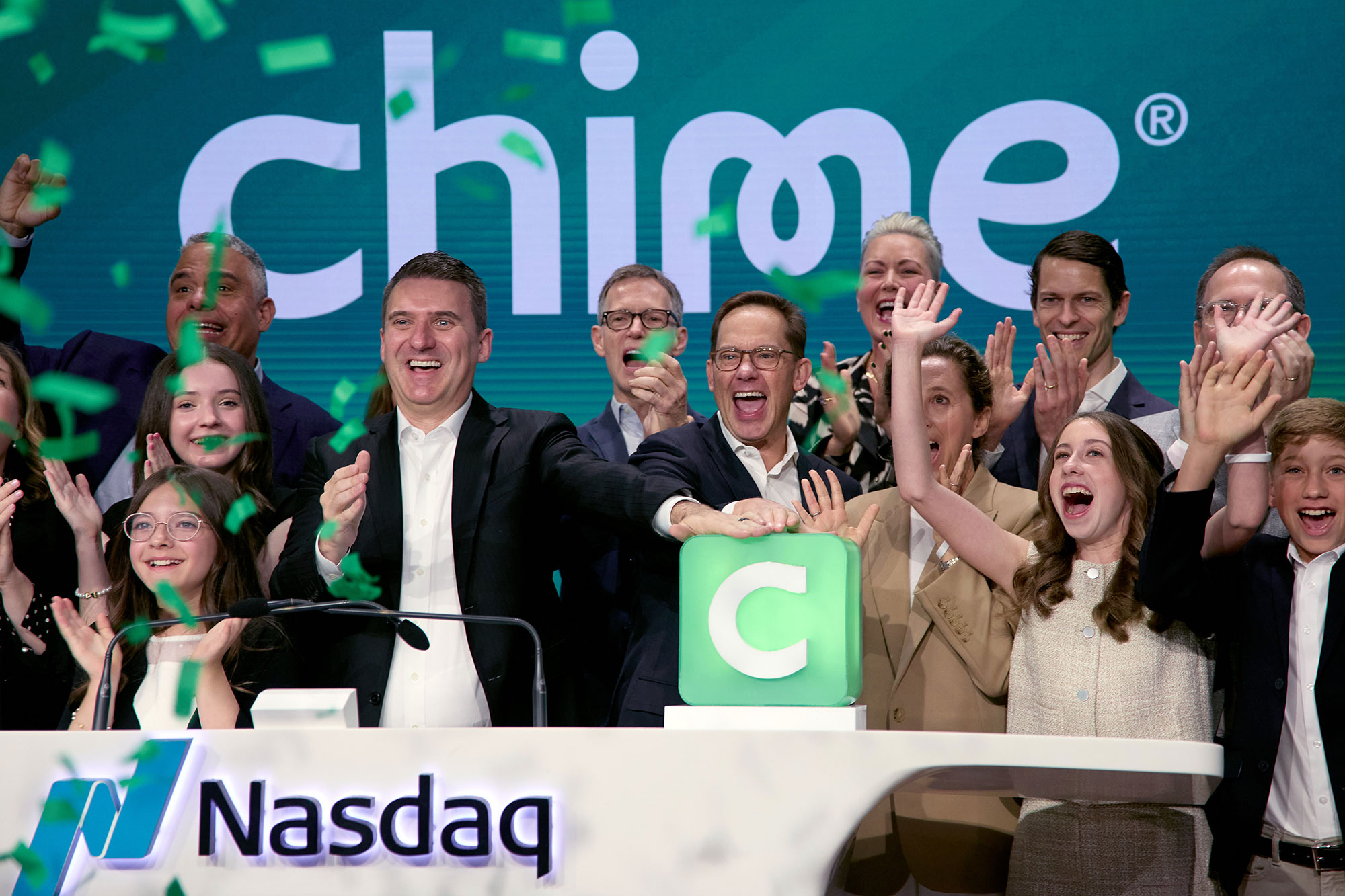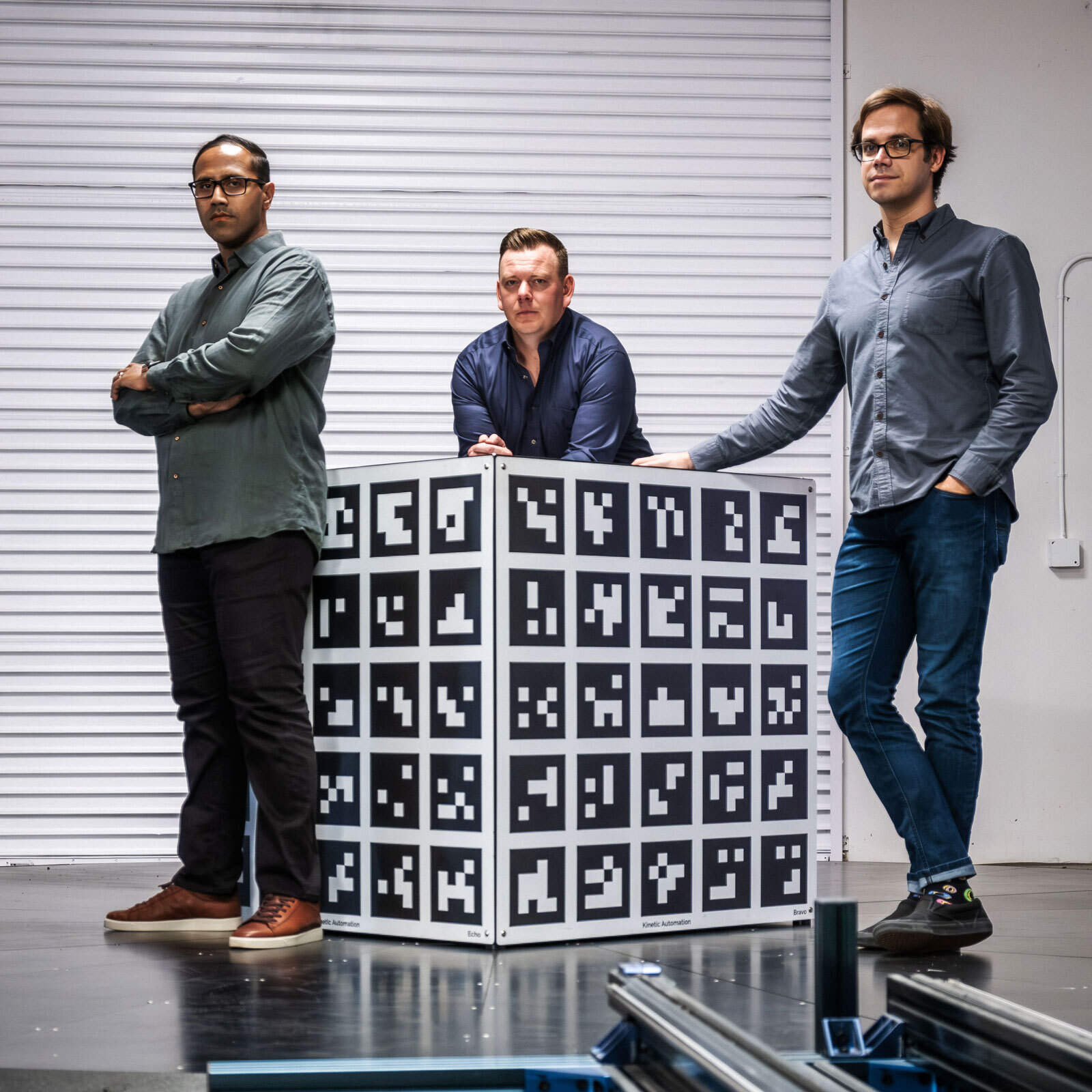Congratulations, Chime!
Today, Chime (CHYM) started trading on the Nasdaq after a 13-year journey to “unite everyday people to unlock financial progress.” The team at Menlo Ventures wishes Chris, Ryan, and the entire team, past and present, our heartiest congratulations for building a truly beloved product that helps millions of customers lead healthier financial lives. We are profoundly grateful for allowing Menlo to be part of the journey.

As with most consumer tech winners, what may have looked to some like an overnight success story was actually many hard years in the making. Consumer banking services in particular are exceptionally hard—huge incumbents with even bigger balance sheets, high costs of customer acquisition, limited opportunities to differentiate, regulatory oversight, high compliance costs, demanding customer service, and little margin for error. It’s no surprise there has been so much historical carnage in this space.
So how did they do it? Looking back, these are some key takeaways that contributed to Chime’s success.
1. Earn your insight
Most category-defining companies start with a spark from a single, key insight. In Chime’s case, Chris Britt was VP of product at Greendot, following years at Visa. His insight was that, if he could convince people to switch their paychecks to a new, customer-centric fintech, the interchange revenue generated from their daily spending would provide sufficient revenue to serve customers profitably, and in a way that was more fully aligned with their long-term interests. This stood in stark contrast to the prevailing market conditions at the time, where financial institutions primarily increased profits by extracting more money from their customers through fees, penalties, and high-interest loans.
2. Pick a worthy cause
Unlocking financial progress for everyday people is a cause we can all believe in. The founders felt it deep in their bones from their own upbringings. Everyday people don’t want handouts; they want exceptionally built products that keep their best interests at the forefront and don’t take advantage of them when they’re in a pinch. This worthy cause has been a magnet for mission-oriented talent at every level.
3. Build minimally
Entrepreneurs often convince themselves that customers want a fully built product from day one—but do they really? Chime had the audacity to launch a banking services provider without actually becoming a bank. Instead, they wrote software on top of existing bank infrastructure, built a simple mobile app, and issued cards. It was the bare minimum needed to start testing their core hypothesis.
4. Get the job done
How do you get people to trust a completely unknown provider with something as important as their direct deposits? The answer? Solve a pain point bigger than the annoyance of switching. The first few offerings weren’t quite enough. Perks on spending? Who cares! Fee-free checking? Better, but not earth-shattering. Enter the industry’s first “Get Paid Early” incentive. The ACH system in the U.S. works by notifying the receiving bank one to two business days before the funds move. Rather than wait for the funds to officially clear, Chime advanced the money to customers as soon as they received confirmation—taking on negative float, but earning customer trust and satisfaction in return. If you’re a hard-working American making under $100K per year—Chime’s core demographic—two days makes a difference.
5. Keep it simple
As Chime found initial product-market fit, there was a temptation to quickly broaden the offerings: credit cards, loans, mortgages—the number of potential banking offerings is immense. Instead of getting distracted, Chime stayed focused on giving customers liquidity for their immediate needs. After “Get Paid Early,” they launched “Spot Me,” a simple mechanism that allows people to overdraft without penalty. They then made it social: “Spot your friends!” With each incremental launch, they focused on making it successful before earning the right to launch the next thing: credit-building tools and MyPay—to challenge the status quo of workers waiting two to four weeks to be paid. The key was understanding the customer deeply, introducing one well-researched value proposition at a time, and aligning the whole company around it.
6. Dial-in unit economics
When you have millions of customers interacting with you every day, you live and die on unit economics. Having precise analytics on revenue, contribution margins, conversion rates, cohort retention, customer lifetime value, referral ratios, and more isn’t optional—it’s imperative. In a noisy world, this lens helped the team know how much to spend to go after the right customers in the right channels, compel them to become direct deposits, and, over time, serve them profitably.
7. Optimize what’s working
Another common temptation for talented engineering and product teams is to add bells and whistles before perfecting the basics. But this team understood that you shouldn’t build more until your core offering sings. Over the years, they’ve strengthened their core by building their own transaction processing system (Chime Core), renegotiating major contracts as their volume has increased, directing their entire team to improve the customer experience, and more. Every penny saved in core operations can be reinvested into creating more value for customers.
8. No holes in the roles
There’s a lot to tackle when getting a business off the ground, and it’s tempting to stretch the team thin in the name of efficiency. While the “do more with less” mindset can be a good thing, it can’t come at the cost of critical gaps. I look at all the early team members—Melissa in marketing, Matt in finance, Ryan in tech, Zach in product, Chris as the fearless leader. They had the skills, strong culture, and the collaborative mindset to ensure every base was covered. As the business and team grew, the founders understood that the only way to scale successfully was to keep hiring exceptional talent across every function—“Entrepreneurship is a team sport,” as Chris says. For every open role, they aimed high—seeking out the very best. The result? A current executive team that ranks among the most talented I’ve seen at any company in my career.
9. Persist
Despite doing so many things right, the founders still faced several existential crises. Early fundraising was tough, the initial product lacked sizzle, and the CFPB came after them for early missteps. In 2019, growing pains in the tech stack even froze transactions for nearly 48 hours. But still, the team persisted. Each time, they took accountability, held themselves to higher standards, and dug deep to deliver on a mission they knew everyday Americans truly needed.
You make us all so proud, team Chime, and with less than 5% penetration of the target market, the adventure is just beginning!

As an early-stage investor, Shawn focuses on companies that serve the “utilitarian consumer”—the individual seeking better, faster, and cheaper ways to move through life. Because basic human needs are persistent, he looks at how people are spending their money and time to assess the value and utility of a product…
Steve is a partner at Menlo focused on investments in Menlo’s Inflection Fund, which targets fast-growing Series B/C companies. He specializes in AI-powered vertical SaaS investments and supply chain technology, including Enable, Eleos, Observe.AI, Scout, 6 River Systems, ShipBob, CloudTrucks, and Parade. Steve joined the firm in 2015 as an…






